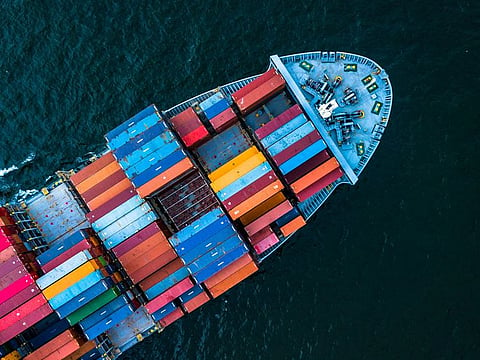Dubai’s bilateral trade with West Africa hits a sweet spot
Economic cooperation between Dubai and West Africa has increased significantly

Despite being one of the world’s most economically vibrant and richly endowed regions with huge natural resources, economies in West Africa are challenged by poor infrastructure and weak institutions.
In their efforts to strengthen the region economy collectively, two of the most important regional economic associations in the continent were formed: the Economic Community of West African States (ECOWAS) and the West African Economic and Monetary Union (UEMOA), driving it towards closer regional integration.
The region comprises 16 countries – Nigeria, Ghana, Senegal, Cote devoir, Niger, Burkina Faso, Mali, Guinea, Benin, Togo, Sierra Leon, Liberia, Mauritania, Gambia, Guinea Bissau, Cape Verde and Saint Helena – and is richly endowed with huge natural resources that are not yet fully exploited.
Major agreements
The EU is the major trading partner of West Africa, with which many trade and investment agreements were concluded. The EU market is fully open to West African trade, as part of supporting the region sustainable development through building the trade capacity of the region. In addition, West African countries are able to produce goods for exports to Europe using materials sourced from other countries without losing the free access to the EU.
Recently, economic cooperation between Dubai and West Africa has increased significantly, yet the business cooperation is below the protentional of both Dubai and West Africa.
West Africa world trade
West Africa is Africa's second largest trading region next to Northern Africa. In 2020, the region total trade reached $201 billion, second to Northern Africa with total trade value of $280.7 billion. Total exports of the region to rest of the world was valued at $86.7 billion in 2020, ranked as third exporting region in Africa after North Africa and Southern Africa. In 2020, the region’s total imports reached $114.4 billion, only second to Northern Africa.
Dubai-West Africa bilateral trade grows
Although 2020 was exceptional year for global trade on the back of the Covid-19 pandemic, yet bilateral trade between Dubai and Africa defied that trend by registering a robust annual growth of about 11.7 per cent, reaching $50.7 billion, up from $45.4 billion in 2019.
In 2020, West Africa was Dubai’s major trading partner, with total trade value of $16.8 billion and percentage share of 33.2 per cent, surpassing both Northern and Eastern Africa - regions that have been Dubai’s traditional main trading partners.
Dubai’s imports from West Africa constituted about 81 per cent of the total bilateral trade with West Africa region, re-exports about 15 per cent and exports about 5 per cent during 2016-2020. Dubai’s imports from West Africa registered a staggering 62 per cent annual growth, exports 11 per cent and re-exports 5 per cent.
Dubai’s imports from West Africa
Dubai’s total imports from West Africa (excluding jewellery and precious stones) reached $185.7 million in 2020, up from $104.1 million in 2019, registering an annual growth rate of about 78%. It is exceptionally high growth rate compared to cumulative annual growth rate of 33per cent over the period 2016-2020.
In 2020, Dubai’s major imports from West Africa included petroleum ($93 million) with 50 per cent share in Dubai total imports; cocoa - at a value of $25.3 million; oil seeds valued at $16.7 million, and fish and crustaceans products for $15.2 million. Among the rest coffee and tea products, and wood products stood out as major imports from West Africa into Dubai.
The imports from West Africa region that witnessed the fastest growth rates in 2020 were mainly mineral fuels, manufactures of straw, esparto or other plaiting materials, live trees and cut flowers, optical and photographic products and Fish, crustaceans, molluscs products.
Dubai’s major import markets within the region in 2020 were Nigeria (53 per cent); Guinea (18.9 per cent), Ghana (13.8 per cent), and Ivory Coast (11.6 per cent).
As the detailed figures above show, bilateral trade with West Africa is witnessing a strong momentum and is expected to grow in the future – with Dubai becoming a major hub for African businesses in the region. Bilateral business cooperation has further strengthened due to increased investment activity of some of Dubai’s major investors in the region. West Africa is a lucrative emerging market for Dubai investors and traders, which represent a gateway to Europe and US markets.
Sign up for the Daily Briefing
Get the latest news and updates straight to your inbox



